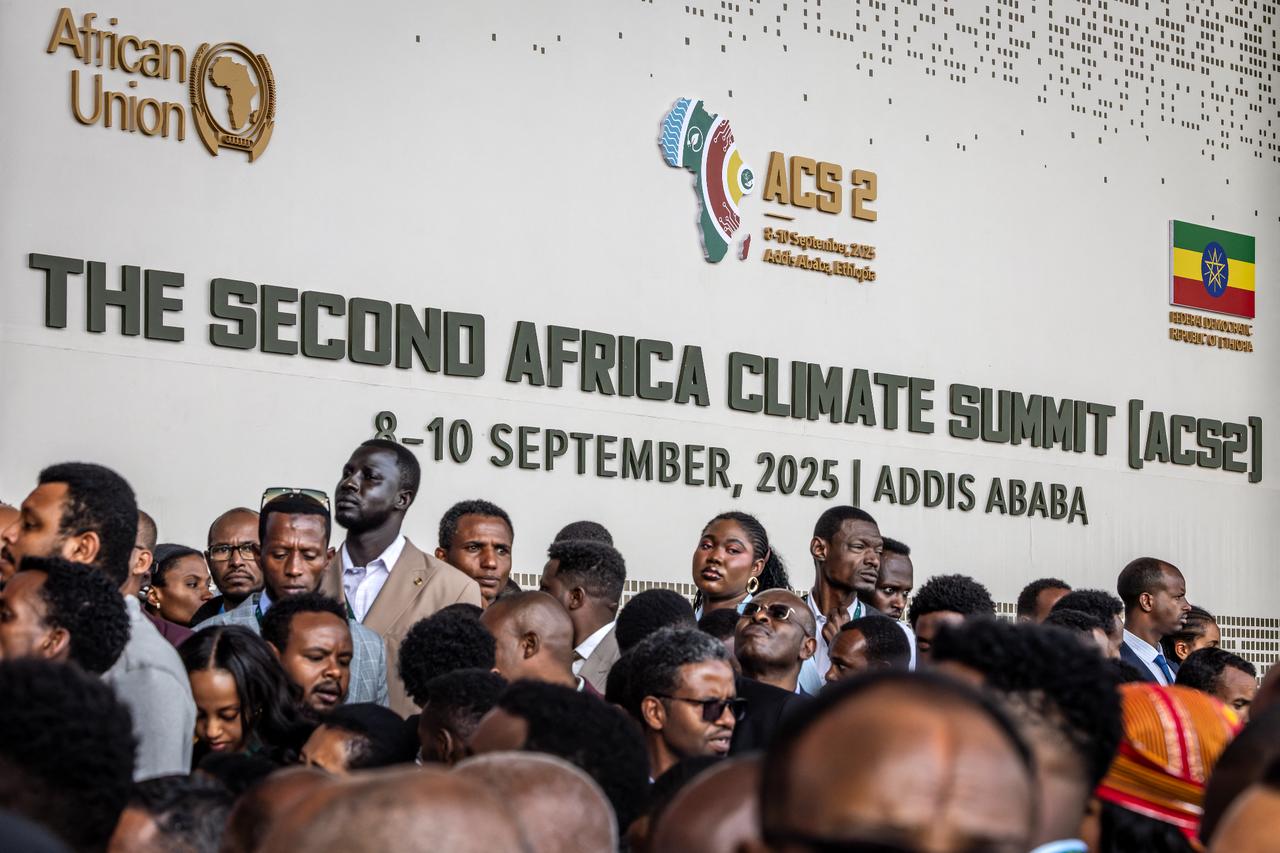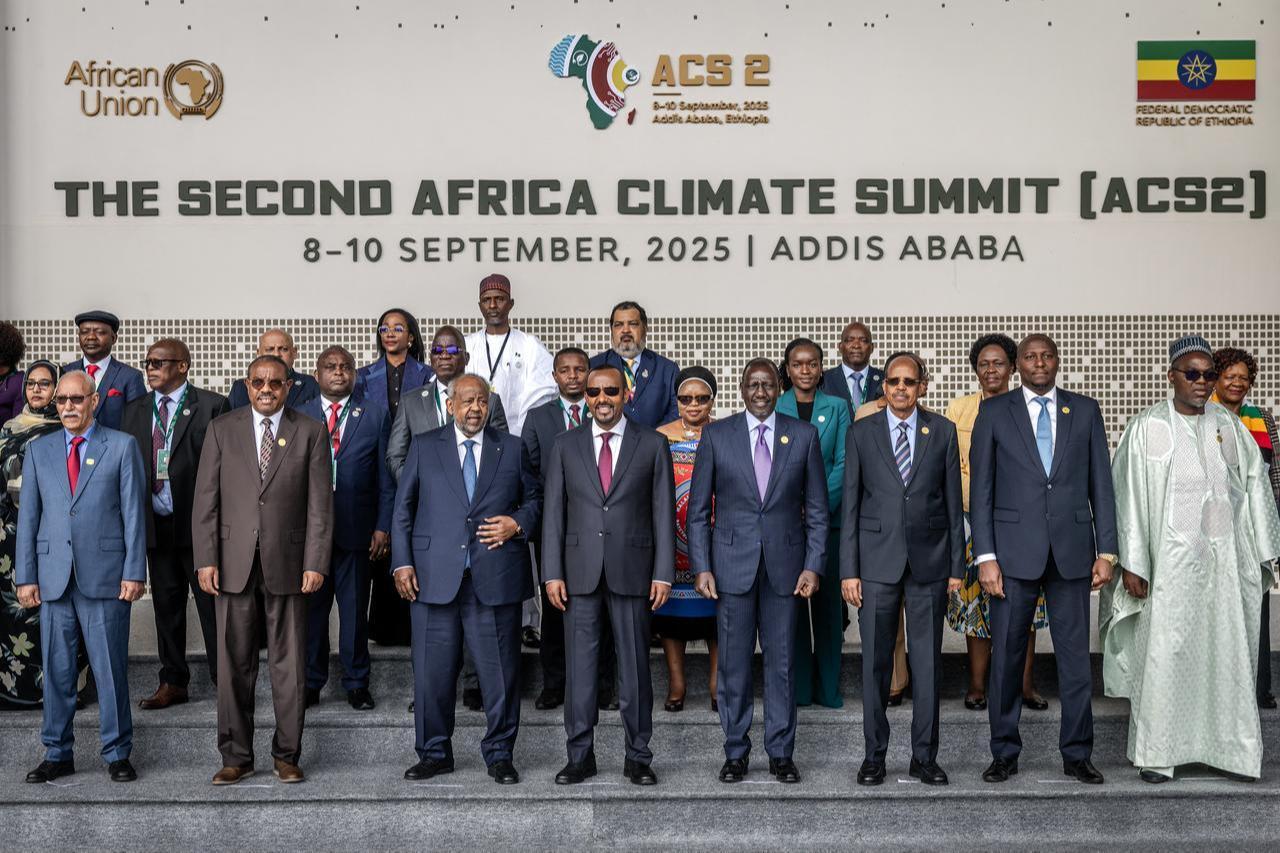
The Second Africa Climate Summit opened in Addis Ababa on Monday with leaders urging a shift from rhetoric to action. Rather than portraying the continent as a victim of climate change, they framed Africa as a driver of solutions and a rising force in the global climate economy.
Ethiopian Prime Minister Abiy Ahmed opened the gathering by calling on international partners to replace aid with investment. He stressed the importance of starting with Africa’s strengths, such as its young population, vast fertile land, and what he described as the fastest-growing solar belt in the world.
Abiy pointed to Ethiopia’s Green Legacy Initiative, which has already seen more than 48 billion trees planted, and to the near-completion of the Grand Ethiopian Renaissance Dam, expected to generate 5,000 megawatts of renewable energy.
“We are not here to negotiate our survival. We are here to design the world’s next climate economy,” he said, adding that Africa’s prosperity would mean cleaner air, healthier rivers, and restored land.
The Ethiopian leader also proposed an African Climate Innovation Compact. Valued at $50 billion annually, the initiative would aim to deliver 1,000 African climate solutions across sectors, including energy, agriculture, water, transport, and resilience by 2030.
In a further step, Abiy formally announced Ethiopia’s bid to host COP32 in 2027, positioning Addis Ababa as a future climate capital for Africa.

African Union Commission Chair Mahmoud Ali Youssouf underscored the need for justice in climate financing. He emphasized that funding must be “fair, significant, and predictable,” noting that African countries continue to struggle with vulnerabilities linked not only to climate change but also to debt and structural inequalities in the global financial system.
Youssouf called for genuine international cooperation to address these challenges, framing climate finance as a matter of justice rather than charity.
Kenyan President William Ruto, who had addressed the first Africa Climate Summit in Nairobi in 2023, commended Ethiopia for advancing the agenda. He reminded the gathering that “no nation can solve this crisis alone,” stressing that only united and sustained collaboration could prevent a climate catastrophe.
The three-day meeting, held under the theme “Accelerating Global Climate Solutions: Financing for Africa’s Resilient and Green Development”, began with a tree-planting ceremony at the Addis Ababa International Convention Center. Heads of state took part, pledging both unity and long-term commitment to restoring ecosystems.